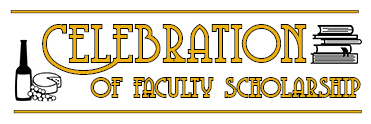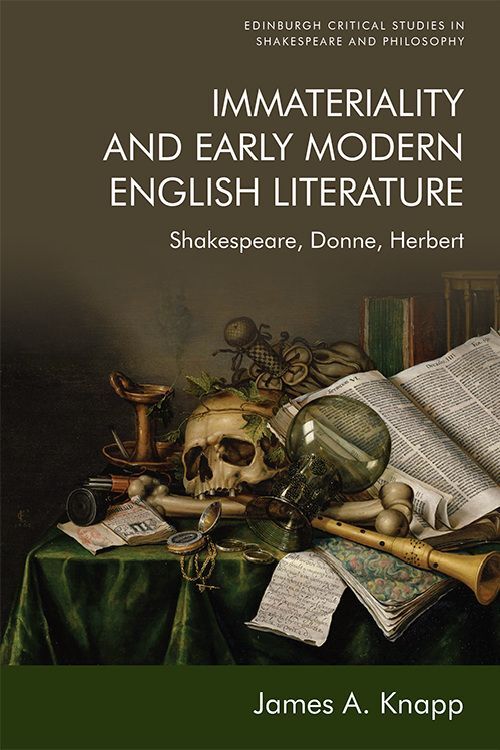Immateriality and Early Modern English Literature: Shakespeare, Donne, Herbert
Item
Title
Immateriality and Early Modern English Literature: Shakespeare, Donne, Herbert
Loyola Faculty Contributor
James A. Knapp
Link
Abstract
Examines literary engagement with immateriality since the ‘material turn’ in early modern studies
- Provides six case studies of works by Shakespeare, Donne, and Herbert, offering new readings of important literary texts of the English Renaissance alongside detailed chapters outlining attitudes towards immateriality in works of natural philosophy, medicine, and theology
- Employs an innovative organization around three major areas in which problem of immaterial was particularly pitched: Ontology, Theology, and Psychology (or Being, Believing, and Thinking)
- Includes wide-ranging references to early modern literary, philosophical, and theological texts
- Demonstrates how innovations in natural philosophy influenced thought about the natural world and how it was portrayed in literature
- Engages with current early modern scholarship in the areas of material culture, cognitive literary studies, and phenomenology
Immateriality and Early Modern English Literature explores how early modern writers responded to rapidly shifting ideas about the interrelation of their natural and spiritual worlds. It provides six case studies of works by Shakespeare, Donne and Herbert, offering new readings of important literary texts of the English Renaissance alongside detailed chapters outlining attitudes towards immateriality in works of natural philosophy, medicine and theology. Building on the importance of addressing material culture in order to understand early modern literature, Knapp demonstrates how the literary imagination was shaped by changing attitudes toward the immaterial realm.
- Provides six case studies of works by Shakespeare, Donne, and Herbert, offering new readings of important literary texts of the English Renaissance alongside detailed chapters outlining attitudes towards immateriality in works of natural philosophy, medicine, and theology
- Employs an innovative organization around three major areas in which problem of immaterial was particularly pitched: Ontology, Theology, and Psychology (or Being, Believing, and Thinking)
- Includes wide-ranging references to early modern literary, philosophical, and theological texts
- Demonstrates how innovations in natural philosophy influenced thought about the natural world and how it was portrayed in literature
- Engages with current early modern scholarship in the areas of material culture, cognitive literary studies, and phenomenology
Immateriality and Early Modern English Literature explores how early modern writers responded to rapidly shifting ideas about the interrelation of their natural and spiritual worlds. It provides six case studies of works by Shakespeare, Donne and Herbert, offering new readings of important literary texts of the English Renaissance alongside detailed chapters outlining attitudes towards immateriality in works of natural philosophy, medicine and theology. Building on the importance of addressing material culture in order to understand early modern literature, Knapp demonstrates how the literary imagination was shaped by changing attitudes toward the immaterial realm.
Date
21-Apr-20
Publisher
Edinburgh University Press
Identifier
9781474457101
Bibliographic Citation
James A. Knapp, Immateriality and Early Modern English Literature: Shakespeare, Donne, Herbert (Edinburgh: Edinburgh University Press, 2020). https://edinburghuniversitypress.com/book-immateriality-and-early-modern-english-literature.html

